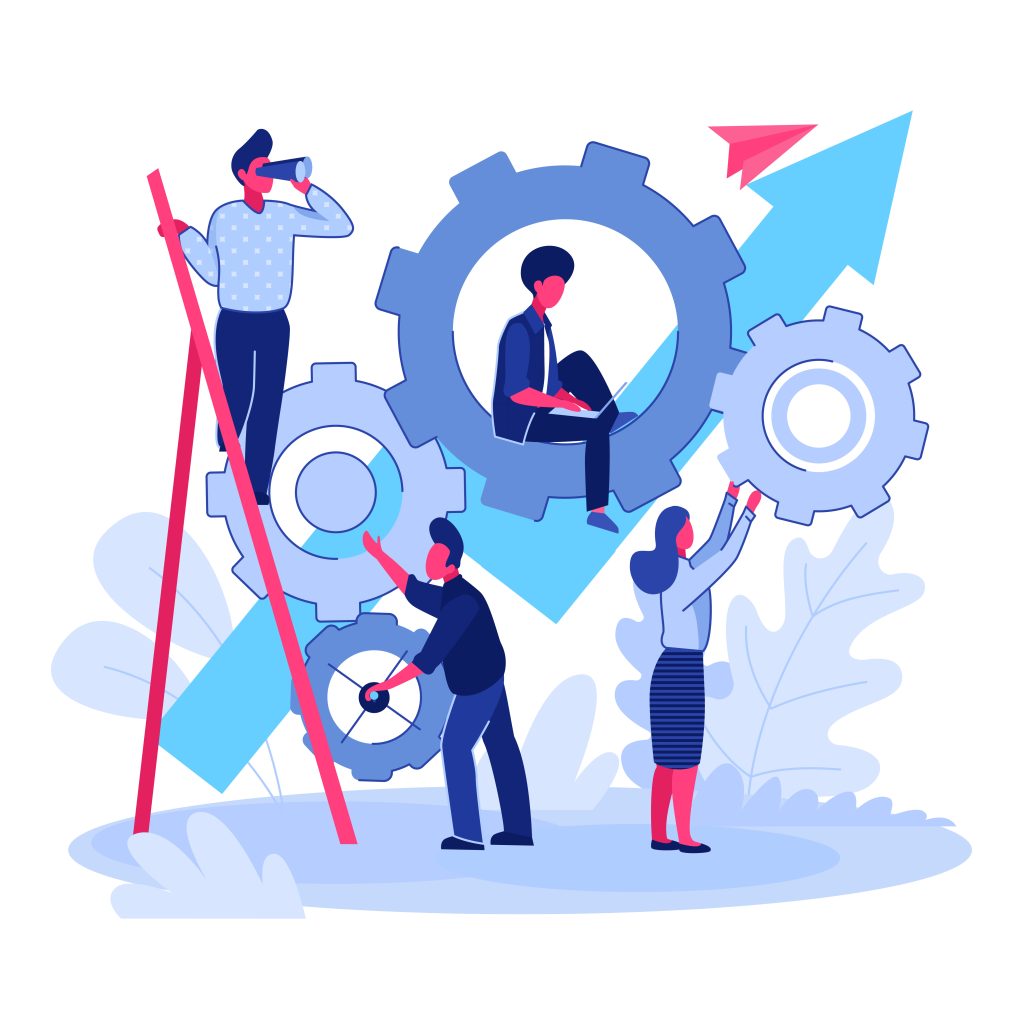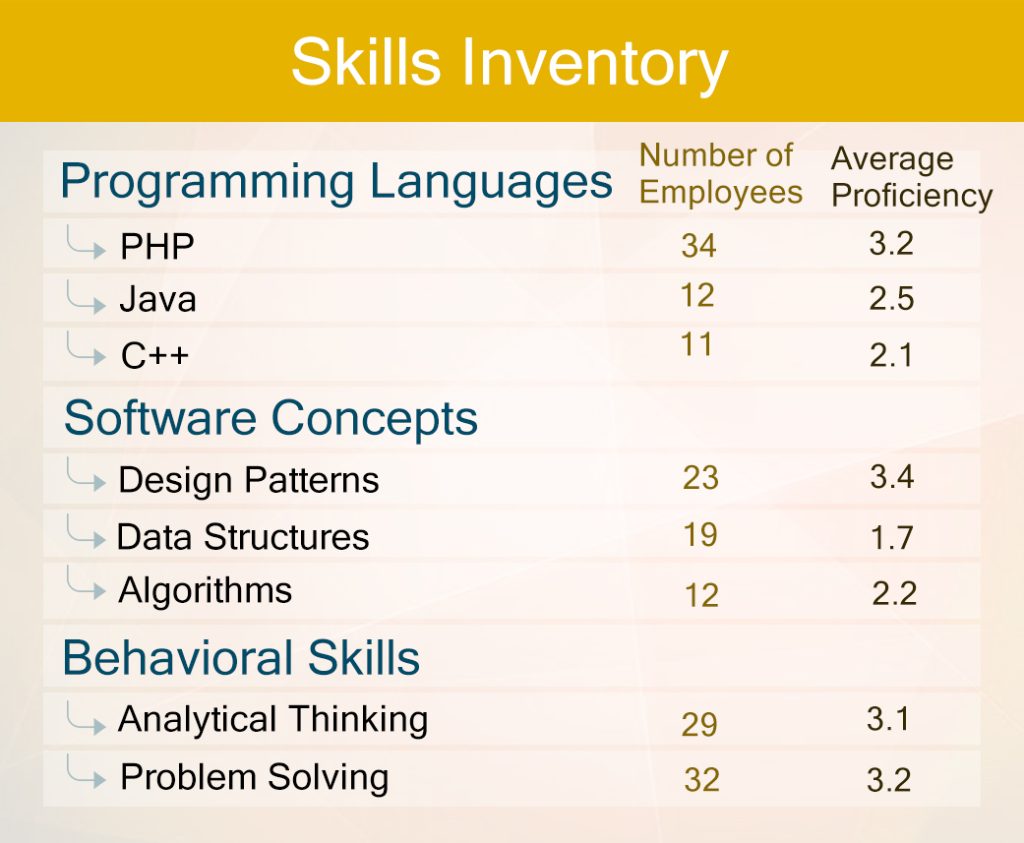Traditional job titles or designations come in all shapes and sizes. However, the question is, are they all relevant to the modern workforce? The harsh truth is, NO! Not all job roles and designations bear the same weight they used to a decade ago.
This is why, in a competitive job market, organizations are finding it harder to attract and retain the best talent – particularly the Gen Z professionals.
Increasingly, many organizations are now moving to a new operating model – that is based on skills. For example, Anish Singh of Unilever explains, “We’re beginning to think about each role at Unilever as a collection of skills rather than simply a job title.”
Among the valuable insights from a 2022 Deloitte study, a job-based working model is hampering more organizations that are now applying the skills-based model to meet their workforce demands.
According to another Deloitte report, only 17% of companies are able to anticipate their required skills – while only 16% expect to invest significantly into skills-based learning over the next 3 years.
Therefore, organizational skill-driven companies are the need of the modern workforce. In this blog, we shall understand this topic in more detail and explore its importance.
Understanding the Skills-based Organization
There’s quite a lot of confusion about the skills-based organization. Hence, it’s important to understand this term.
Deloitte defines a skills-based organization as “The organizational form that places skills and human capabilities at the heart of talent strategies, creating a new operating model for work and the workforce.”
To understand this definition, let’s see how a skills-based organization differs from a “traditional” hierarchy-driven organization. Traditional companies defined jobs as the fundamental block for how work is done. For instance, job roles and titles were used to define who performs a task, how they perform the task, and how it is managed.
You may ask what the problem is with the traditional approach. This approach created “siloed” departments and “rigid” organizational structures – that followed a protocol-based system to complete any major or minor task.
On the other hand, a skills-based organization is driven by:
- Collective organizational skill and expertise
- Continuous learning
- Business adaptability
As compared to traditional companies, a skills-based organization focuses on employee skills and competency – to drive their business value and growth. Here are some of the core characteristics of an organization skill-based companies:
- Employee skills and competencies are their most prominent assets.
- Business adaptability and flexibility – through a culture of continuous learning and motivation for employees to adapt to new roles and responsibilities.
- A flatter organizational hierarchy – that emphasizes more on cross-functional teams and collaboration.
- Workforce empowerment and autonomy – where employees can self-learn new skills to solve business challenges.
Why are Modern Enterprises Adopting the Skills-based Approach?
This Deloitte study reveals why modern enterprises are moving towards the skills-based model. Among the interesting findings, here’s what this study revealed:
- Only 19% of business executives believe that the traditional work model is the best way to achieve business value – while 60% desire fractionalized work where they are assigned tasks and assignments based on their skills and interests.
- Among frontline workers, only 23% believe in the traditional work model, while 38% prefer fractionalized work.
Further, 36% of business executives and 59% of workers say that their employers value their job experience and degrees over their acquired skills.
Going by the same study, here’s what enterprises can gain by transitioning to an organizational skill-driven company:
- 63% are more likely to achieve their desired business results.
- 107% are more likely to attract new talent.
- 98% are more likely to retain the best performers.
- 98% are expected to gain a reputation for employee development and growth.
Evidently, in a dynamic or shifting business environment, an organizational skill-driven culture is not just about how to organize daily functions. With their flexible working culture, companies are able to quickly adapt to changing market conditions, thus delivering business agility.
By separating work from job roles, they can take this skills-based approach to:
- Improve cross-functional communication between various teams – thus ensuring that knowledge is not “locked up” and can freely flow between teams.
- Improve workforce productivity by leveraging the organizational skill sets available (and not limited to selected teams).
- Create an experiential or self-paced learning environment–where employees continuously learn new skills through upskilling and reskilling.
Basic Principles of a Skills-based Organization
How does any enterprise transform into a skills-based organization? Here are 4 basic principles of an organizational skill-driven business:
- Fractionalized work
The first principle of a skills-based organization is to “free up” employees from the limits of a job role. Fractionalized work is defined as “breaking down any major task into smaller meaningful chunks of work – in the form of smaller tasks or projects.”
85% of HR executives plan to reorganize work such that skills can be easily ported across work.
For instance, workers in traditional job roles can be encouraged to apply their skills and expertise to external tasks within the organization. Self-organizing teams can be dynamically created, comprising team members with diverse skills in a fractionalized work model.
- Many-to-many relationships between employees and jobs
In the traditional working model, every employee was expected to complete one job. This was the basis of a “one-to-one” relationship model. The skills-based organization is built on a “many-to-many” relationship model.
This means every employee can apply multiple skills to multiple jobs. Also known as the “workforce of one,” individuals with a diverse portfolio of skills can now contribute to a range of work functions.
Besides improving business results, this principle enables organizations to adapt better to market conditions and retain top talent.
- Skill-based decision making
An organizational skill-based enterprise makes any work-related (or workforce-related) decisions based on the available employee skills and abilities. For instance, based on a skills profile, organizations can:
- Create their new job descriptions.
- Plan their next hiring process.
- Determine their employee compensation.
- Evaluate employee performance.
- Create their organizational hierarchy.
To enable skills-based decision-making, organizations can deploy a Skills Profiler tool to create and map various skills.
- Skills hub
An efficient skills hub is the “driving engine” of a skills-based organization. By matching skills to functional teams, organizations can create the optimal team compositions for the best results.
Companies can define a common language and framework for diverse skills with a centralized skills hub. Skills Taxonomy is an effective hub (or database) of skills across business functions and industries.
Challenges of Skills-based Organizations
As discussed so far, a skill-based approach can transform any enterprise and take it to the next level. However, this transition has multiple challenges and obstacles the organization must overcome first.
Here are the 4 challenges hindering the development of an organizational skill-based enterprise:
- Resistance to change
A legacy-based mindset is the biggest barrier to transforming into an organizational skill-based enterprise. Companies adopting the skills-based approach make the cardinal mistake of trying to eliminate the traditional job role. To transition from job to skills, organizations must gradually embrace change through:
- Project-based approach
- Temporary teams
- Agile mode of working
- Limited visibility into existing skills
A skills-based organization needs complete visibility into its existing skills and proficiency levels. Most organizations are unable to identify their current skills – and the skills they need to develop for future requirements.
By using a Skills Taxonomy tool, organizations can overcome this challenge by:
- Identifying the soft and hard skills in their existing workforce.
- Developing a reliable skills-based framework with proficiency levels.
- Identifying the areas of improvement.
- Insufficient mapping of skills to job role
Despite the importance of skills, most organizations are unable to identify and map each core skill to a job role. Under the stress of delivering business results, organizations fail to develop an efficient skills strategy, which is necessary to:
- Identify skills needed for any job role.
- Identify potential skills based on future job requirements.
- Cover the skills gap through hiring, upskilling, or reskilling.
With a Skills Analytics tool, organizations can now:
- Easily map and manage their skills profiling (based on role or employee).
- Perform a skills gap analysis to identify the skills gap.
- Complete focus on skills
While skills are the driving force of any skills-based organization, the danger is the complete focus on skills. A skills-based organization must also focus on other human elements like individual interests, life experiences, and professional aspirations.
Conclusion
While the traditional working model was based on job roles, the organizational skill-driven approach enables organizations to meet the changing demands of the modern workplace. To ensure a smooth transition into the future, you must explore the importance of a skills-based organization, its basic principles, and various challenges.
At IYS, we have the right skills, tools, and technology to help you transition into a skills-based organization. Are you prepared to make this transition? We can help you in the process.
Connect with us at connect@itsyourskills.com – with your business queries.





